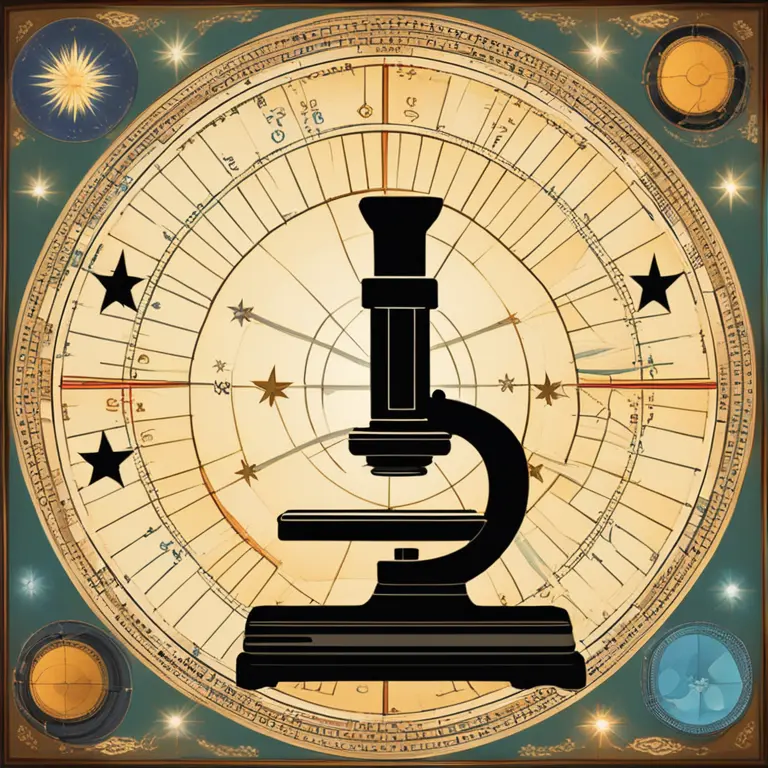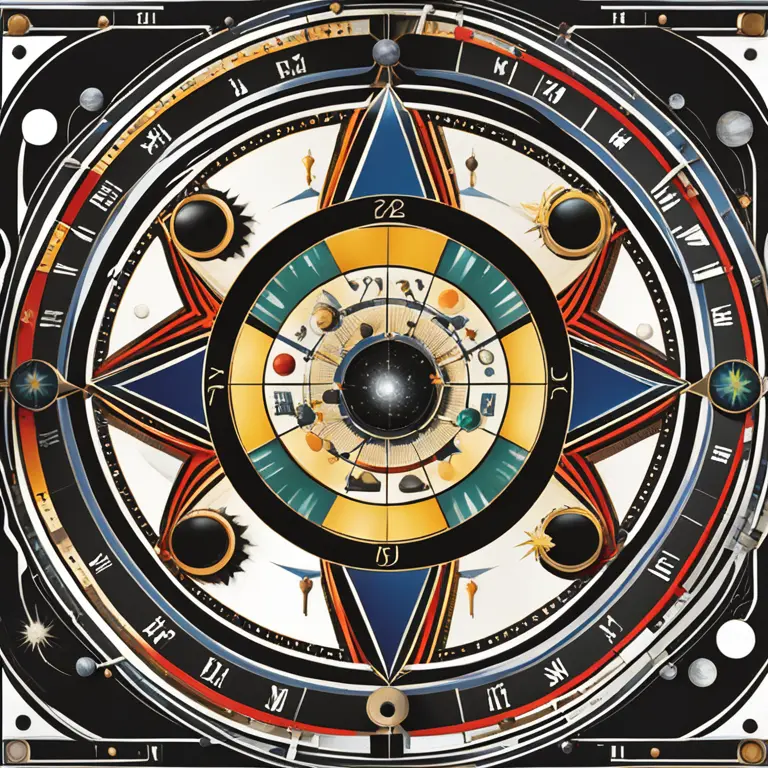
Astrology's Role in Future Prediction
Does astrology hold the key to our future, or is it simply a guiding light? Dive into the cosmic debate and discover astrology's potential for foretelling events.
article by Priya Deshmukh
Ancient Art, Modern Debate
Astrology has been practiced for millennia, serving as a celestial guide for human affairs. The modern debate around astrology's efficacy is as heated as ever, with proponents and skeptics clashing over its ability to predict the future. The question of whether celestial bodies influence our lives persists, with many seeking answers in the stars. Astrology's resurgence in the digital age demonstrates a continued fascination with cosmic insights, despite ongoing scientific skepticism.

Astrological Techniques and Predictive Power
Astrological predictions rely on the intricate analysis of a person's natal chart, which is a map of the sky at the time of their birth. Techniques such as transits, progressions, and solar returns allow astrologers to forecast possible future trends and events. Although astrologers assert that these techniques can provide valuable foresight, they often emphasize the role of free will and personal agency, suggesting that astrology's predictions are not deterministic but rather indicators of potential outcomes.

Science Versus Spiritualism
The scientific community generally dismisses astrology as lacking empirical support, labeling it a pseudoscience. Critics argue that any accurate predictions are either coincidental or the result of the Forer effect, where vague statements are perceived as personally meaningful. Astrology, however, thrives in the realm of spiritual and personal exploration, where empirical evidence is not the sole measure of value. For many, astrology offers a unique perspective on life's challenges and a means for self-reflection.

Personal Growth and Self-Understanding
At its core, astrology's central appeal may not lie in concrete predictions but in its ability to prompt personal growth and self-understanding. By interpreting celestial symbolism, individuals might gain insights into their character, relationships, and life path. Astrology encourages introspection and can be a therapeutic tool, providing comfort in times of uncertainty and fostering a sense of connection with the universe.
Merging Astrology with Technology
With the advent of sophisticated software and algorithms, astrology in 2024 and beyond is increasingly personalized and accessible. Tech-savvy astrologers use data to enhance predictive accuracy, while skeptics point out the perpetuation of confirmation bias. The role of artificial intelligence in astrology is also on the rise, opening new frontiers for interpretation and prediction, but raising questions about the loss of the human touch in spiritual practices.
Looking Ahead: The Astrological Forecast
As we gaze into the future, the role of astrology as a predictive tool will likely remain a polarizing topic. Both individuals and society at large will continue to debate its validity and influence. Astrology's popularity, however, is a testament to its enduring allure and the human desire for understanding beyond the tangible. Whether astrology can truly predict the future may be less important than its power to provide perspective and insight in an ever-changing world.
Published: 1/12/2024
Modified: 1/12/2024
More predictions
Come back here soon to learn more about yourself and your future


Do Zodiac Signs Reflect Your True Self?
Discover the connections between zodiac signs and personality traits in this insightful look into astrology's relevance to our lives.


The Historical Journey of Zodiac Signs
Embark on a historical journey to discover the inception of the zodiac signs and their influence on astrology today.


The Essence of Zodiac Water Signs
Delve into the depths of the Zodiac's Water signs: Cancer, Scorpio, and Pisces, and their profound influence on personality, emotions, and relationships.